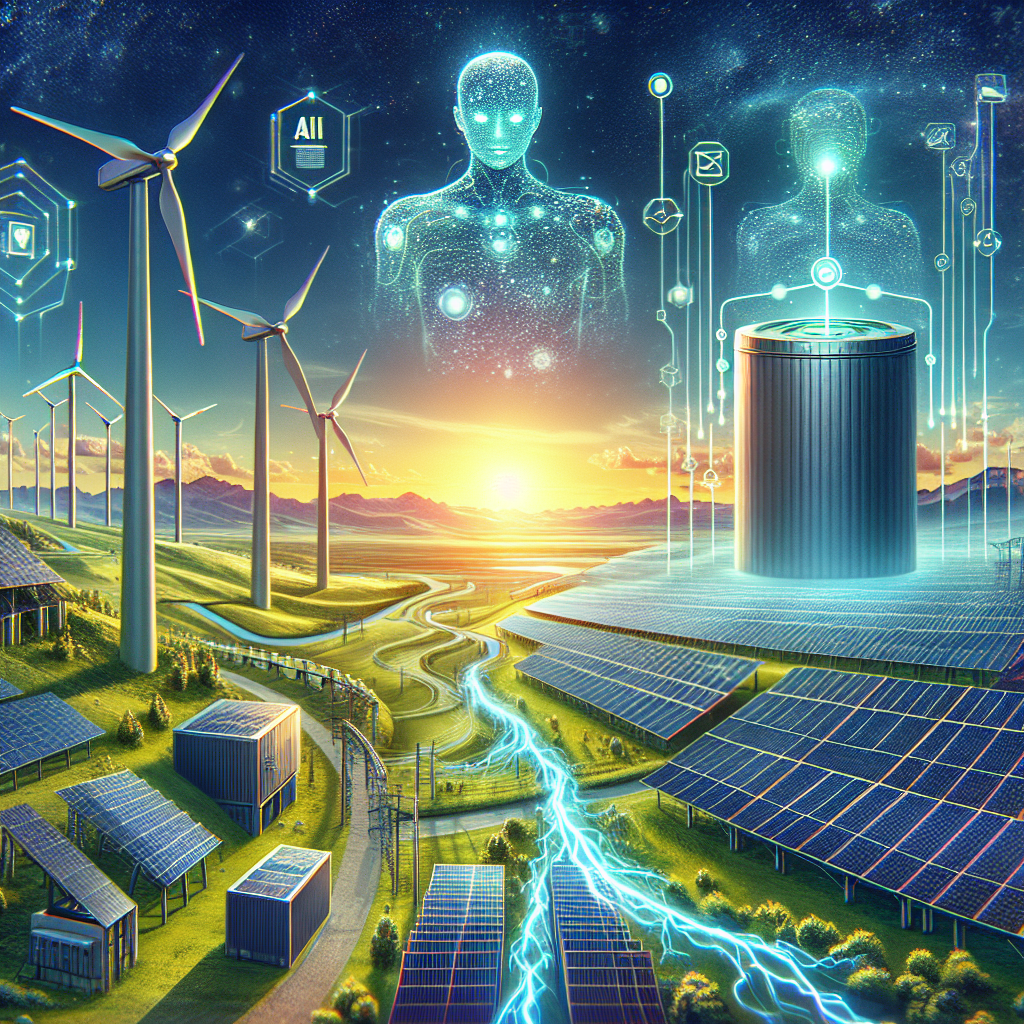As the world transitions towards a more sustainable future, renewable energy sources such as solar and wind power are becoming increasingly popular. However, one of the biggest challenges facing the renewable energy sector is the issue of energy storage. Unlike traditional fossil fuel power plants, renewable energy sources are intermittent and can fluctuate based on weather conditions. This makes it difficult to rely solely on renewable energy without a reliable storage solution in place.
Fortunately, advancements in artificial intelligence (AI) technology are revolutionizing the way energy storage is managed in the renewable sector. AI-powered solutions are enhancing the efficiency, reliability, and scalability of energy storage systems, making them an essential component of the renewable energy transition.
AI-powered solutions for energy storage management in renewables leverage machine learning algorithms to optimize the performance of energy storage systems. These algorithms analyze data in real-time, predicting energy demand and supply patterns to ensure that energy is stored and distributed efficiently. By integrating AI technology into energy storage management, renewable energy sources can be seamlessly integrated into the grid, reducing reliance on fossil fuels and lowering carbon emissions.
One of the key benefits of AI-powered solutions for energy storage management is their ability to maximize the use of renewable energy sources. By predicting energy generation patterns and consumption trends, AI algorithms can optimize the charging and discharging of energy storage systems to match supply with demand. This not only increases the overall efficiency of renewable energy systems but also reduces the need for backup power sources, ultimately lowering costs and carbon emissions.
Another advantage of AI-powered solutions for energy storage management is their ability to extend the lifespan of energy storage systems. By analyzing data on energy usage and system performance, AI algorithms can identify potential issues before they escalate, allowing for proactive maintenance and optimization. This predictive maintenance approach helps to prevent costly downtime and ensures that energy storage systems operate at peak performance for longer periods.
Furthermore, AI-powered solutions for energy storage management enable greater grid flexibility and resilience. By dynamically adjusting energy storage systems based on real-time data, AI algorithms can respond to fluctuations in energy supply and demand, helping to stabilize the grid and prevent blackouts. This flexibility also allows for the integration of new renewable energy sources, such as rooftop solar panels and wind turbines, into the grid without compromising reliability.
Overall, AI-powered solutions for energy storage management are essential for the successful integration of renewable energy sources into the grid. By optimizing energy storage systems, reducing costs, and increasing grid flexibility, AI technology is paving the way for a more sustainable energy future.
FAQs:
Q: How do AI-powered solutions for energy storage management work?
A: AI-powered solutions for energy storage management leverage machine learning algorithms to analyze data on energy generation, consumption, and system performance. These algorithms predict energy demand and supply patterns in real-time, optimizing the charging and discharging of energy storage systems to match supply with demand.
Q: What are the benefits of AI-powered solutions for energy storage management?
A: AI-powered solutions for energy storage management offer several benefits, including maximized use of renewable energy sources, extended lifespan of energy storage systems, greater grid flexibility and resilience, and reduced costs and carbon emissions.
Q: How can AI technology help to extend the lifespan of energy storage systems?
A: AI algorithms can analyze data on energy usage and system performance to identify potential issues before they escalate. This allows for proactive maintenance and optimization, helping to prevent costly downtime and ensuring that energy storage systems operate at peak performance for longer periods.
Q: How do AI-powered solutions for energy storage management contribute to grid flexibility and resilience?
A: By dynamically adjusting energy storage systems based on real-time data, AI algorithms can respond to fluctuations in energy supply and demand, helping to stabilize the grid and prevent blackouts. This flexibility also enables the integration of new renewable energy sources into the grid without compromising reliability.

